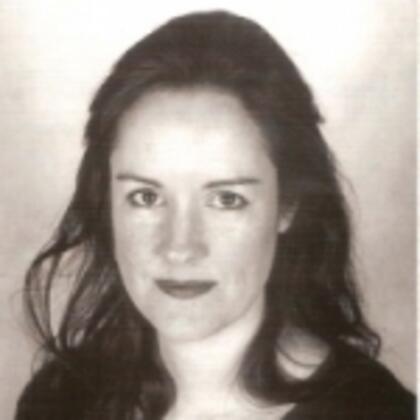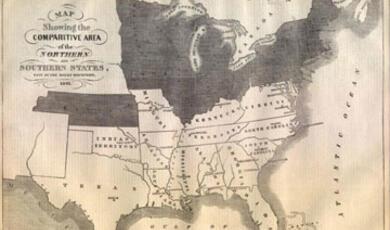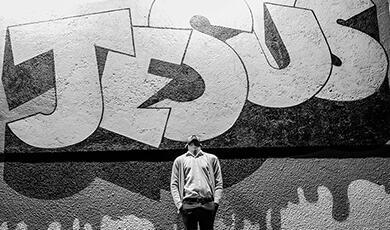Divine Knowledge and Human Freedom
Share
- Details
- Transcript
- Audio
- Downloads
- Extra Reading
Not only are the conceptions of divine knowledge and wisdom diverse; they have a wide ranging impact on how we view humanity, especially human freedom in relation to our future. If God knows in advance what I will do, does that mean that I am no longer free to change my mind?
Download Transcript
Divine Knowledge and Human Freedom
Professor Gwen Griffith-Dickson
How you answer a question depends, of course, on the question you ask. And the way you ask the question is influenced by the way you, perhaps unconsciously, structure the situation in your mind. And the way you answer these questions in turn affects other issues that might at first seem quite unrelated.
This is certainly true when we reflect on the problems of life from the perspective of a religious faith. It is no good asking a Jain why an omnipotent God permits evil; it is no good asking a Jew whether or not God is subject to karma. They both are concerned with the problem of evil and suffering, but the specific questions they must address differ because the beliefs that structure their questions differ.
The major world religions that we have today are complex, not homogeneous structures, because they have evolved over a long period of time. In that time, they have bumped into each other, and into different philosophical cultures, and have absorbed and been influenced by each other’s ideas and problems. They have not always adopted each other’s answers; but sometimes they have adopted each other’s questions.
We see an example of this in the historical interaction of Christianity, Judaism, and Islam with ancient Greek philosophy. The religious framework or world-view of these three monotheisms, with their emphasis on scriptural revelation, is quite different from the metaphysics of Plato and Aristotle. But paradoxically that meant that the philosophy did not necessarily contradict the tenets of the faith, and could be adopted as the philosophical framework for articulating that faith. However, the collision of different styles of reflection threw up all sorts of new questions for the evolving faiths.
From an inter-faith point of view, what is interesting here is to see how these different faiths responded to the same stimulus of Greek philosophy. What characterised their responses, was not the bitter theological controversies that divided them principally, the status of Jesus, or the doctrine of the Trinity as opposed to the unqualified monotheism of Judaism and Islam, it was the shared picture of God that came to the fore as their common concern.
We have an elegant example of this in discussions of God’s knowledge. All three of these scriptural monotheisms had a powerful belief, revealed in their sacred scriptures, that God is all-knowing. This does not seem too problematic; for religions that believe in a single, transcendent God, it seems obvious. Then they came across Aristotle’s work.
In chapter 9 of Peri Hermeneias (De Interpretatione, On Interpretation) Aristotle raises the problem of statements about the future. Can we say that these are either true or false? Is it true or false now, he asks, that a battle will start tomorrow? As Aristotle sees it, a problem arises if you claim that the Principle of Bivalence – that a proposition is either true or not true – applies to propositions involving the future. If a proposition is true, reality necessarily must correspond to it. If a future proposition is true, then reality in future must turn out the way the proposition claims. ‘Fatalism’ is the result: that things cannot turn out otherwise. If it is true (now) that I will have pasta for lunch tomorrow, then when tomorrow’s lunchtime comes, necessarily I must have pasta. What if I have a sudden urge for a salad? Does this mean that, if statements about the future are true today, that there is no choice (for humans) or chance (for nature)? Is everything then necessarily determined ? even what we think of as our free will? Then, if what we do is determined and we have no choice, are we still morally responsible for what we do, given we couldn’t do otherwise?
If it is true now that war will be waged on Iraq in mid-March, 2003, then there is nothing Saddam Hussein can do to avert it. There is nothing Tony Blair can do to avert it. There isn’t even anything Donald Rumsfeld can do to avert it. So if it turns out to cause a number of deaths or disasters, no one is to blame because no one has any choice in the matter.
Is this right?
The dilemma is it seems that nothing can truly be said about the future, or else the future is wholly fixed and determined and there is no freedom, choice, or chance. Aristotle’s way out was to decide that statements about the future which are not ‘necessary’ in any philosophical sense ? so excluding those that can be predicted by natural laws ? are neither true nor false now. He may have resolved the paradox in a common sense way, if you are thinking about human knowledge that is bound by time. But the monotheist philosophers of Islam, Judaism and Christianity spotted the problem for believers in God. It is one thing to say that a future statement is not true now and cannot be known by human minds. But what if you claim that there is a God who is all-knowing, a God who ought to know the future? Is God ignorant of what lies ahead? Or if God knows whether or not a battle will happen tomorrow, does that mean that no-one can prevent it, not even Saddam Hussein, whom we are told by the Prime Minister is the only one who can?
If God does know my future actions, and they are therefore necessary, how can reward and punishment be just? But if God doesn’t know the future, how can God exercise providence? How can God arrange things as He wills, still less for our benefit or His justice, if He does not know what is going to happen? So if God is omniscient, then do human beings possess free will? Or are our actions predetermined in conformity with God’s knowledge (as well as His will)?
These problems arose in exegetical discussions within Judaism. Jewish commentators had long exercised their skills on the story contained in Genesis 22.1-14, known in Jewish circles as the Binding of Isaac. God commands Abraham to take his son Isaac up a mountain and offer him as a sacrifice to God. Abraham, with a heavy heart, obeys—obeys up to the ultimate point, at which moment an angel appears and indicates a ram that Abraham is to offer instead. Did God know in advance what Abraham would do? If God did know what Abraham would do in the future, God’s knowledge being certain, it would certainly come to pass. So, if there is no question of what Abraham will do, in what sense is Abraham still ‘free’ to perform or not perform his actions when the time comes? ? This is the context that initially triggered Jewish discussion of the debate.
This question had a different history in Islam: for although the Qur’an implies that God is omniscient, stating for example that God knows all things [57:3] and all that we do [63:11], nevertheless when God’s knowledge of the future is discussed, The Qur’an does not happen to say that God knows what humans will do in the future. The way was open for those Muslims who maintained that human beings have a free will (‘Libertarians’) to claim that God only foreknows what is specified in the Qur’an, and thus does not know in advance what people will freely choose. Others, such as al-Ghazali, took a broader view of God’s omniscience:
‘God knows all objects of knowledge and comprehends whatever takes place from the boundaries of the earth to the highest point of heaven. He is knowing in a way which makes it certain that the weight of a particle of dust on earth and in heaven does not escape His knowledge. Indeed, He knows the scurrying of a black ant upon a hard rock in a dark night. He perceives the motion of the mote in the air. He knows what is secret and hidden. He observes the innermost thoughts that occur, the ideas that stir, and the secrets that are concealed in the heart.’
and so the problem could not be banished so easily.
In Christian thought, the problem was raised by Augustine, and later by Christian medieval philosophers, some aware of the discussion in Jewish and Islamic circles, some well-versed in Aristotle, but some following the purely Christian tradition found in Augustine and Boethius. The logical dilemma was put pithily by Aquinas: ‘Whatever is known by God must be; for whatever is known by us must be, and God’s knowledge is more certain than ours. But nothing which is future and contingent must be. Therefore, nothing which is future and contingent is known by God.’
Within Christianity, the problems surrounding God’s knowledge were perhaps most bitterly contested in the Reformation in disputes between Catholics and Protestants. The point of their strife shows how this issue has a clear impact on beliefs in salvation. If my actions are totally predetermined and lie outside my power, in what sense am I responsible for them, and how can either reward or punishment ever be just? Am I predestined for salvation or damnation?if so, what’s the point in trying to do anything about it myself? When Erasmus and Luther clashed on the subject; Erasmus challenged Luther’s theological position on the grounds that it denied human free will. Luther was willing to embrace the possibility that all events in the world are necessary, because all happens through God’s willing, which is not contingent or changeable. Even though our actions are in some sense necessitated, however, so long as we willed them they happen in accordance with our will. Calvin took a similar position to Luther’s. Erasmus’ response was to depict this scenario as God willing us to sin then punishing us for it, which is unjust. (Cp. the philosophers of Basra, as we discussed last time.) Thus the question of what human freedom consists in was highlighted as a central question in the debate, both in the philosophical debate about the logical problem, and in the theological disputes between Catholics and Reformers.
Here we can see that this issue is not merely a logical puzzle; it has important moral and religious implications that were matters of contention in Christianity, Judaism, and Islam. In Judaism, it bears on the value and import of the Torah: what sense is there in enjoining someone to uphold and follow the Law if they cannot do otherwise than what they in fact do? Is the Torah then nonsense? Al-Farabi, (d. 950) raised these concerns about justice from the Islamic perspective:
It then becomes necessary in all religions that in his doing of anything man has basically no choice. Thus what comes to him by way of punishment in this world and the next is not due to something of his doing that has come about through his will and choice. Thus God, who rewards and punishes, would not then be just in His action. But these things also are all repugnant and reprehensible according to all the religions and very, very harmful for people to believe.
This debate is not merely of historical interest. Nelson Pike aroused the controversy again in our times with the work of Prior and an article. A wearying number of articles and books have been written in the last few decades on the question of whether or not divine foreknowledge and human free will are incompatible. Some have revived medieval positions on the question, sometimes knowingly and sometimes not. The Islamic and Jewish contributions, however, are often overlooked in contemporary Anglo-American, mostly Christian, debates.
What is interesting is not merely the enduring nature of the problem, nor that it arises in all three monotheisms, but further, that the different solutions and objections do not fall into three separate categories: ‘Jewish’ vs. ‘Christian’ vs. ‘Muslim’ views. Rather, the responses cut across the faiths: there are Jews, Christians and Muslims who hold a certain position—a stance which is opposed in turn by their co-religionists. Likewise, the positions are not divided by epoch, as if the medievals thought this, while the moderns think that (although there are of course profound as well as subtle differences between ages and religions).
Some have resolved the dilemma by simply denying that God knows in advance what I will do. In doing so, you don’t need to say that God is ignorant. As we saw, Aristotle pointed the way forward by denying that statements about the future have a determinate truth value, in other words, a statement making a claim about an event 100 years from now is neither true nor false right now. You could then say something that is neither true nor false does not count as ‘knowledge’. This denial that future statements could be true or false, therefore that God must know them, was maintained by some Islamic philosophers, as well as those Jewish thinkers in interaction with them. Various modern philosophers agree. Peter Geach, for example, says that the future is not real, and cannot be an object of knowledge. It doesn’t exist, so how can it be either true or false? One way philosophers put this is: ‘“future contingent propositions” are neither true nor false.’
This makes it possible to do the same quickstep that can and has been done with regard to omnipotence, as we saw last time. If omnipotence does not mean that God can do anything, but only what is do-able by God; then one can plausibly argue that omniscience means not that God can know anything, but only what is knowable: if the future is neither true nor false, not even God can know whether it is true or false, and this is thought to be no compromise of his omniscience. Richard Swinburne, for example, suggests that omniscience should be understood as something like: the knowledge of everything true which is logically possible to know. Future contingent propositions are (it is claimed) not logically possible to know, even for God. Thus, God knows everything that is and that has happened, and the future insofar as it is necessitated by physical causes.
Alternatively, one can, of course, deny human freedom, and perhaps opt for a strong vision of predestination. We see this in denominations both of Christianity and of Islam. Alternatively, one can, as Luther did, interpret human freedom in such a way as to co-exist with a strong view of omniscience and foreknowledge. What does freedom consist in? In having lots of choices? Or in being able to choosing the thing you want, even if there is no other option? For Luther, it was the latter view. One can have only one choice, but as long as that is what you want, you have willed it. And therefore you bear responsibility for it. One can be foreordained to sin, but insofar as one wills it when one does it, one does it freely and culpably. God can know that I would choose to marry a certain chap, and if God knows this, it is true that I will do so—nevertheless, in Luther’s terms, insofar as I loved him and wanted to marry him, my act was free despite the necessity implied in God’s foreknowledge. These issues have also been rediscovered in modern times.
There is a solution that is at once tidy and difficult to conceive. In the Christian tradition, it was proposed by Boethius, but it was asserted also by Ibn Sina, and by Crescas in the Jewish tradition. It is to say that God is timeless. God is not subject to time and its progression, God therefore has no past or future; everything is eternally simultaneous for God’s knowledge. Since there is no ‘future’ to God there is no ‘foreknowledge’ – just timeless knowledge, in eternity, of all that we can only experience sequentially. God does not ‘know in advance’ what I will do. So the ‘foreknowledge’ dilemma is solved by saying God does not have ‘fore’ knowledge.
Boethius wrote:
His knowledge, too, transcends all temporal change and abides in the immediacy of his presence. It embraces all the infinite recesses of past and future and views them in the immediacy of its knowing as though they are happening in the present. If you wish to consider, then, the foreknowledge or prevision by which He discovers all things, it will be more correct to think of it not as a kind of foreknowledge, but as the knowledge of a never-ending presence.
Similarly, Aquinas writes: ‘God is altogether outside the sequence of time, being, as it were, a great citadel of eternity which is altogether at once and beneath which lies the whole course of time in one simple vision; hence in one vision he sees everything that will happen in the course of time... not as though future to him and his vision,... but he sees eternally each things that happens at whatever time.’ Aquinas also uses the image of a circle: all the points on the circumference are all ‘present’ to the centre at once. This view, then, seeks to explain the certainty entailed in God’s knowledge in such a way that the knowledge does not itself create the certainty, make the event happen, but merely witnesses it eternally and continually, even though from our point of view, it hasn’t happened yet. Of course, maybe this just creates another dilemma ? God may not foreknow what I will do, but God knows eternally; this seems to reintroduce predestination all over again. If God knows what I will do timelessly, doesn’t that still make it necessary?
Other problems have been raised about God’s omniscience. What form does God’s knowledge take? Does he think in propositions? How does God come to know things? Does he know by observing them? Then he would seem to need information from the world. Does he know the happenings of the world by willing them? Then does that impair our freedom? Can a changeless, timeless God know everything? After all, a proposition a timeless changeless God cannot know, allegedly, is ‘Right now Gwen is giving a lecture.’
If these problems have never bothered you, you may have sympathy with Maimonides’ utterance:
What I myself say is that all these difficulties… have as their cause the fact that they established a relation between our knowledge and His, may He be exalted; for every sect considers the things that are impossible for our knowledge and consequently thinks that this also holds necessarily with regard to His knowledge or else that the thing is obscure for it. The philosophers ought to be blamed more strongly than anyone else with regard to this question.
Maimonides here is objecting to anthropomorphism ? thinking of God too much as a super version of a human being. Now if you believe that God is not just a very able human being, there will have to be a difference somewhere between human and divine knowledge. Why not locate that difference at the source of the difficulty? What is a problem for us temporal being in knowing the future is not a problem for God?
There is another Maimonides-inspired attitude to this question. Maimonides, although a very logical thinker, had a rather laid-back attitude towards contradiction. So following him, we might provocatively speculate: maybe philosophers of religion are mistaken in their desperation to show ‘how is it possible’ for God to be God, according to our human notions and our human constraints of logic. Maybe even it is an important affirmation about God’s transcendence to say that whatever it is that believers want to say about God transcends assumptions of human logic? I realise that this is the sort of tactic that gives religious believers a bad name among atheists and many will not want to take up this strategy.
I can’t help observing also that something of the pattern we picked out last time may be occurring here too: ceasing to think about this question as an aspect of God’s relationship to creatures, and making it a question about God’s capabilities. ‘What can God know, and how? And given our answer, does he still deserve to be called God?’ Need we take problems about truth-value, future contingent propositions, counterfactuals, subjunctive conditionals, and other philosophical paraphernalia as the only way to examine the problem? What if we explore the context that I have suggested throughout this year: the idea of a relationship?
Grab someone who believes in God, but who has not yet been deformed by the study of philosophy. Ask her or him if God knows what she will do tomorrow, even if she has not yet made up her mind. Then ask how does God know. Many people will intuitively answer: ‘God knows by knowing me so well ? better than I do myself ? that He knows what I will do, even when I don’t.’
Now few philosophers currently writing will take this as a model for how God knows ? this sort of interpersonal knowledge, as opposed to factual knowledge like the truth or falsity of propositions. A reason they might give for not taking it seriously is this. If I say I know my husband so well that I know what he would do in a hypothetical situation, that is not really what most philosophers call knowledge. It is a firmly held belief, perhaps with some warrant and evidence, but it do not possess the required certainty to qualify as knowledge. It isn’t really possible know what your spouse or best friend or dog would do, if he, she, or it were placed in certain circumstances. Thus the analogy fails, unless one wants to speak of God holding a firm belief in what I will do. (Which is the language of many, since Pike. Many in the foreknowledge debate talk about God’s ‘beliefs’, not God’s knowledge. But on the assumption that believers want to say that God’s are true, as is God’s knowledge ? who wants a misguided God? ? this doesn’t really make the problem go away.)
But to say human interpersonal knowledge is not a good model for trying to understand God’s knowledge of us because our knowledge is not certain is simply to forget what an analogy is. An analogy entails a difference; especially an analogy which, however clumsily, is drawn between divine and human experience. It breaks down at some point. It seems perfectly reasonable to argue that the point at which an epistemological analogy between the divine and human breaks down is at the degree of certainty or perfection of one’s interpersonal knowledge of another or ‘belief’ in another. I feel I can be quite certain that if my husband were offered a large sum of money to kill our children, he would refuse. While as I quibbling philosopher I would admit ‘I strongly believe this’ but I don’t really know; I wouldn’t admit doubt if I was in a witness stand. Nevertheless, the fact that I have to admit of the possibility of being wrong, there seems no good reason why this ‘relational’ knowledge of another person must also be fallible in God. It seems reasonable to say, given that God is transcendent, that one of the differences between us is that whereas I possess a ‘high’ degree of certainty in my comprehension of someone else, God possesses complete certainty in his supercomprehension (to use Molina’s word). Meanwhile, my ‘knowing’ what my husband would do does not make it necessary that he does so, even if I turn out to be right. In the same way, God’s knowledge of future possibilities based on intimate supercomprehension, rather than the necessity of propositions, is certain but not coercive.
A final development of this style of thinking could come, again, from an inspiration from Aristotle. Aristotle thought that what God knows is himself – his own essence and ideas. Many believers after Aristotle found that unsatisfying, and rather cold for a personal God. But philosophers in all three of the Abrahamic faiths took it up: Ibn Rushd, Maimonides and Aquinas all argued that God knows all by knowing his own essence, which reflects the whole of reality. If we see ourselves not as an alien object opposed to God, but as taken up in God’s essence and God’s experience, God knows what it is we are knowing and experiencing ? simply in the act of being God. (This is one way to address the problem of how a timeless God can know time-bound events: through intimacy with me he is aware of what I experience, as I experience it.)
This is the last lecture of the year, and of this series on God. It seems to me that a consistent theme has emerged from the different things I have had to say, and you have also contributed, on God. The first is that our notions of humanity and our notions of the divine are linked. This means that our notions of what is desirable form the basis of our thinking, guessing and dreaming about God. But it also goes a little further: that one of the most fruitful ways of thinking about God is in the context of the relationship which God has to ourselves and to all of nature.
The other is that our picture of divine, in many surprising ways has an impact on our understanding of our personal responsibility. What we say about how God acts, what God can do or know, all has a knock-on effect on what and who we consider ourselves to be, and what we can or should do.
I want to finish tonight, and this year, with part of a poem by the Islamic mystic al-Hallaj:
The most intimate of secret thoughts
enveloped and fixed along the horizon
in folds of light.
How? The ‘how’ is known
along the outside,
while the interior of beyond
to and for the heart of being
Creatures perish
in the darkened
blind of quest,
knowing intimations.
Guessing and dreaming
they pursue the real,
faces turned towards the sky
whispering secrets to the heavens.
While the lord remains among them
in every turn of time
abiding in their every condition
every instant.
Never without him, they,
not for the blink of an eye?
if only they knew!
Nor he for a moment without them.
This event was on Wed, 05 Mar 2003
Support Gresham
Gresham College has offered an outstanding education to the public free of charge for over 400 years. Today, Gresham plays an important role in fostering a love of learning and a greater understanding of ourselves and the world around us. Your donation will help to widen our reach and to broaden our audience, allowing more people to benefit from a high-quality education from some of the brightest minds.


 Login
Login







